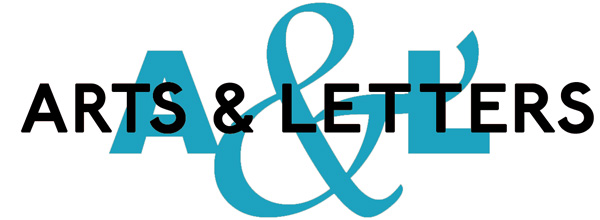Category Archives: Ampersand Interviews
Ampersand Interview Series: Tara Westmor interviewed by Darian Araiza-Samples

In the latest Ampersand Interview, Assistant Managing Editor, Darian Araiza-Samples, spoke with Tara Westmor about the intersection of ethnography and poetry, poetic form, and her upcoming poetry collection, An Historic. You can read her poem in Issue 41 of Arts & Letters.
Darian Araiza-Samples: You call yourself an anthropologist poet- in what ways do you find that ethnography intersects with your poetry?
Tara Westmor: I think about this question often. Both as a current PhD student in anthropology and as a poetry MFA graduate. In many ways both poets and ethnographers are hyper attuned to observation and witness. And in this current political moment, both poetry and ethnography should be an act of care. In more specific terms, both genres endeavor to examine larger cultural themes, and shine a light on how those themes play out. For example, many of my poems are about female mental illness, particularly mine, in a world dominated by male historiographies (specifically in Dayton, Ohio where I am from). How do mid-western women grow up in worlds devised of these male industrious histories? Although my poems are a very specific example, other poets do an exceptional job of observation and highlighting in their poems. Jericho Brown’s debut collection Please is a witness of Blackness in academia, oh! or Bettina Judd’s critique of modern medicine built on Black female bodies in her gorgeous and devastating book patient. Documentary poets, Mark Nowak, Phillip Metres, and real-life anthropologist/poet Nomi Stone all do this similar work.
DAS: Your poem, “These I Remember Most:”, uses hanging indentation in an interesting way. When you are drafting poems, do you consider form early on in the process or does that come later as your poem reaches completion?
TW: Sometimes I do consider form and sometimes I don’t. You can’t force a form that won’t take. Sometimes, the form I start with, dictates the “aboutness” of The Poem. Other times, I write in thick blocks of prose and lineate later. “These I Remember Most:” actually started as a list (things I remembered from living in that strange house in the middle of Dayton), but what I remembered most, my sister’s beautiful eye, revealed itself on the page as I wrote it.
DAS: This poem is a beautiful intimation of childhood and sisterly love- do the complexities of family relationships find their way into your writing often?
TW: Thank you! I’m in a phase where I can’t write about much else. I’ll go to write a poem about the city, or about something I’ve read, and my sisters appear. Like many young and naïve poets, I started writing poems about my relationships with suitors or lovers. As I mature, my sisters enter the poem. A stronger love. Lately, I’ve been writing about my female relationships. I have three sisters and a mother who loves with such a deep well. And that well, the love between mothers and daughters is so complicated in a patriarchal world. The writing potential there is as deep as the love they give.
DAS: What/who inspires you most as a poet?
TW: My mother read to us a lot as a child. She also loved the city where she grew up. I think somewhere, I conflated the two. The city is a story. I’m very inspired by history, or more precisely, the stories we don’t include in that “history.”
DAS: When did you first consider yourself a poet?
TW: Haha, what a loaded question! I used to carry around a thick leather-bound notebook when I attended grade-school where I kept all my poems. I think I called myself a poet in secret then. Now, I call myself a poet in public, but don’t think it’s true in secret. My sister has the beautiful eyes, surely she’s the poet. My mother holds all the love, surely we should call her a poet.
DAS: What are you reading right now?
TW: I’m always reading several books at once. Currently, my bag contains poetry collections When I Grow Up I Want to Be a List of Further Possibilities by Chen Chen Blue Guide by Lee Briccetti, and Bright Archive by Sarah Minor, I’m also reading Carole McGranahan curated essays called Writing Anthropology and Paisley Rekdal’s Appropriate: A Provocation. And lastly, a book about Dayton: David McCullough’s The Wright Brothers.
DAS: What is next for your writing? Is there anything you can share about forthcoming projects or poems?
TW: I am working on two projects. First, a poetry collection (of which “These I Remember Most:” is included) currently titled An Historic. And secondly, I am co-curating a collection of poetry called Anthro/Poetics, that explores the ways ethnography and poetry intersect.
Tara Westmor is an anthropologist poet, raised in Dayton, Ohio. She received her MFA in poetry from New Mexico State University and is currently a PhD candidate at the University of California-Riverside. She has work published and forthcoming in The Cincinnati Review, The Greensboro Review, Hunger Mountain, Prairie Schooner, The Sink Review, and elsewhere. She is co-curating an anthology, called Anthro/Poetrics, of the intersections between ethnography and poetry.







